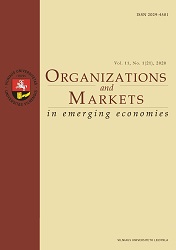Does Corruption Act as a Deterrent to Foreign Direct Investment in Developing Countries?
Does Corruption Act as a Deterrent to Foreign Direct Investment in Developing Countries?
Author(s): Sanjib Guha, Niazur Rahim, Bhagaban Panigrahi, Anh D. Ngo, David SimmondsSubject(s): Economic policy, International relations/trade, Developing nations, Economic development, Financial Markets, Corruption - Transparency - Anti-Corruption
Published by: Vilniaus Universiteto Leidykla
Keywords: corruption; Foreign Direct Investment; developing countries;
Summary/Abstract: Developing countries institute policies to attract Foreign Direct Investment (FDI) that promotes growth and development. Corruption disrupts and complicates the implementation of policies that govern the inflows of FDI and the operations of foreign firms; such interference with policies is more than likely to disrupt and lower the inflows of FDI. This paper evaluates whether or not corruption reduces inflows of FDI into each and every developing country. Our study shows that developing countries with high growth rate (> 6% annual GDP growth) attract more FDI than countries with low growth rates although they are both steeped in corruption. Multi-national Corporations (MNCs) seem willing to cope with corruption in countries with high growth rates.
Journal: Organizations and Markets in Emerging Economies
- Issue Year: 11/2020
- Issue No: 21
- Page Range: 18-34
- Page Count: 17
- Language: English

